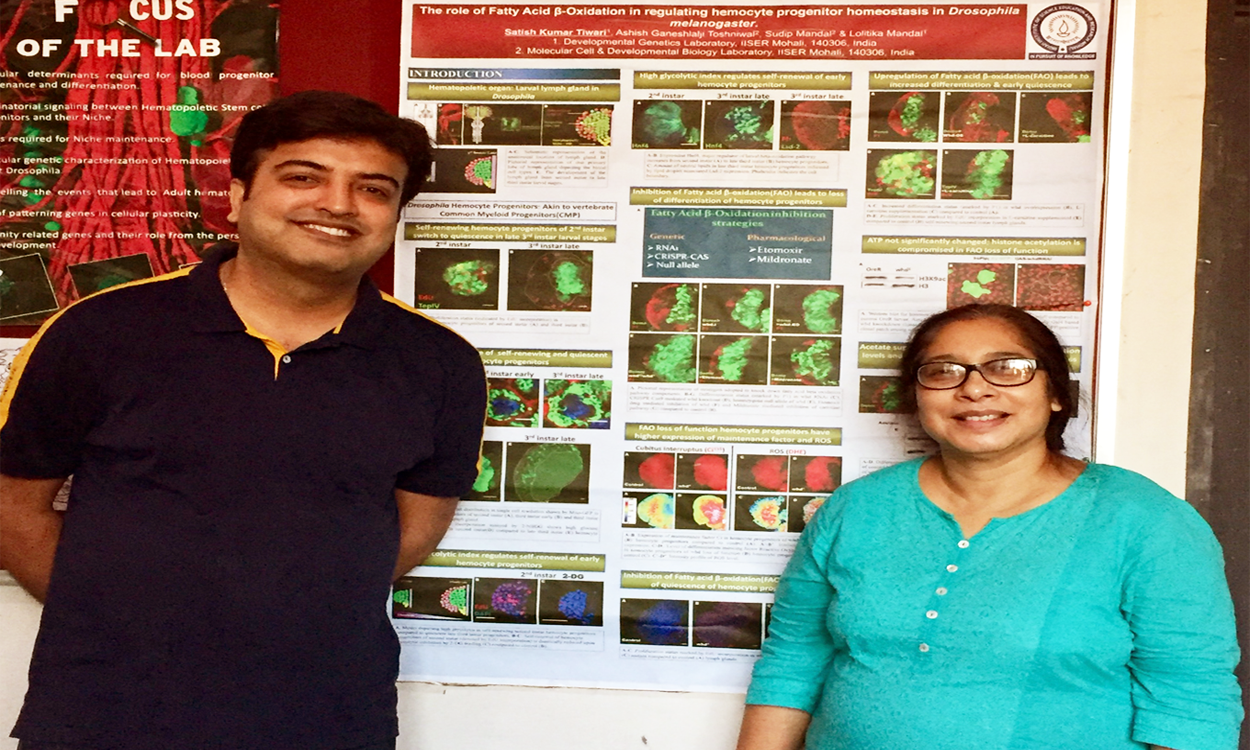
Indian scientists have revealed how fat metabolism regulates the formation of mature and functional blood cells from blood progenitors.
JUN 25, 2020 | BY RATNESHWAR THAKUR
Scientists at Indian Institute of Science Education and Research (IISER) Mohali - have discovered the role of fatty acid oxidation in the blood cell formation. The findings, published in the journal eLife, suggest fatty acid oxidation is necessary for blood progenitor differentiation, a process that eventually give rise to new blood cells.
Our body produces around 2-3 million blood cells every second. Blood cells originate from a small population of hematopoietic stem cells (HSCs) that differentiates into progenitor cells. These progenitor cells differentiate to functional blood cell types. Besides cellular signals and growth factors, nowadays, multiple metabolic pathways have also been implicated in the regulation of stem cells. However, the metabolic requirements of the immediate product of stem cells: the progenitors, is still not worked out. Scientists still have much to learn about how this complex process of blood cell maturation is regulated at a cellular level.
Now, a research team led by Dr. Lolitika Mandal at IISER Mohali has revealed how fat metabolism regulates the formation of mature and functional blood cells from blood progenitors. In this study, they have shown in blood progenitors, Jun-Kinase is the cellular signal which kick-starts fat breakdown to control their differentiation.
To probe the role of metabolism in progenitors, Mandal’s team chose to study the blood progenitors in the fruit fly, Drosophila melanogaster. Drosophila is a robust genetic model that makes the study of a biological process by genetic means very convenient. Interestingly, Drosophila blood progenitors present in an organ called the lymph gland during larval stages of its development shares several features with the myeloid progenitors of vertebrates.
According to this study, blood progenitors in the larval blood-forming organ of Drosophila have high levels of fat. Additionally, they also express genes responsible for the synthesis of the enzymes - required for fat burning or oxidation in blood progenitor cells.
The fat oxidation product is Acetyl CoA, which is known to play a critical role in the acetylation of proteins and histones. “We found that, upon disrupting fat oxidation, histone acetylation is affected, leading to a block in the differentiation program. What was exciting to see is that feeding acetate to these larvae rescued the defect in differentiation, thereby confirming that histone acetylation defects in fat oxidation led to differentiation defects of blood progenitors,” said Satish Kumar Tiwari, first author in this study.
This is the first report; where study implicates the role of fat oxidation in blood progenitor differentiation. Interestingly, certain forms of pathophysiological conditions like cancer also rely on fat oxidation for their progression. A better understanding of the metabolic regulation of the biological processes will pave the way for therapeutic interventions.
Another important aspect of this finding is the loss of blood progenitors and their aberrant differentiation if fat oxidation is up regulated exogenously, raising a question mark on the use of fat burning supplements. Nowadays, many diet plans and supplements like L-carnitine are adopted by people for burning fat in the body without getting into details on side effects or its physiological effect. This study, therefore, calls for detailed research on the physiological impact of these supplements before its mass use.
Research team included Satish Kumar Tiwari, Ashish G. Toshniwal, Sudip Mandal and Lolitika Mandal from IISER Mohali. DBT Wellcome-Trust India Alliance Senior Fellowship to Lolitika Mandal financially supported the study.
Journal Reference:
Fatty acid β-oxidation is required for the differentiation of larval hematopoietic progenitors in Drosophila
Acknowledgement and Disclaimer:
Author claims no competing interest. The report is prepared on the basis of inputs provided by the research team.

“We further show that in the absence of fat oxidation, progenitors greatly enhance their glucose uptake, which coaxes them towards hyper-proliferation rather than maturation/differentiation,” she added.